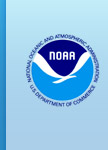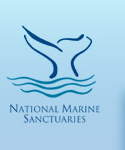Scientists to Learn More about "Hidden Life" of Reef

Coral reefs are the most biologically rich marine ecosystems in the world, yet we still have much to learn about the vast array of species that exist on them. When most people think of reefs, they think of corals and fish. Yet, aside from tiny microbes, the majority of reef diversity comes from the lesser-known species of invertebrates referred to as crypotobiota, which loosely translates to “hidden life.”
To better understand the composition of coral reef communities and the diversity of the organisms that make up the reef ecosystem, scientists from around the world have been placing specially designed small structures — called Autonomous Reef Monitoring Structures or ARMS — on the seafloor. ARMS are designed to mimic the structure of coral formations in hopes of attracting the reef’s “hidden life.”
This summer, Florida Keys National Marine Sanctuary joined the effort and installed nine ARMS in Looe Key Sanctuary Preservation Area in the middle Keys. An additional 18 ARMS will be deployed in the sanctuary this summer, with nine in the upper Keys and nine in the Tortugas.
ARMS are small, tiered platforms affixed to the seafloor that are deployed for one to three years. Once these structures are recovered, scientists will perform genetic testing on the organisms which had settled on the ARMS in order to create a catalog of diversity which will be compared to sites around the world.
Since 2006, more than 650 ARMS have been deployed globally throughout the Pacific, Atlantic, and Indian Oceans, in shallow (30-65 feet), forereef habitats.
Knowledge of these lesser-known organisms and the overall diversity of the reef is critical to effectively responding to stressors to coral reefs. In the face of global threats to reefs such as climate change, scientists are concerned that much reef biodiversity could be lost before it is even documented.
ARMS were developed by NOAA National Marine Fisheries Service and Census of Coral Reef Ecosystems partners as a Census of Marine Life legacy.


